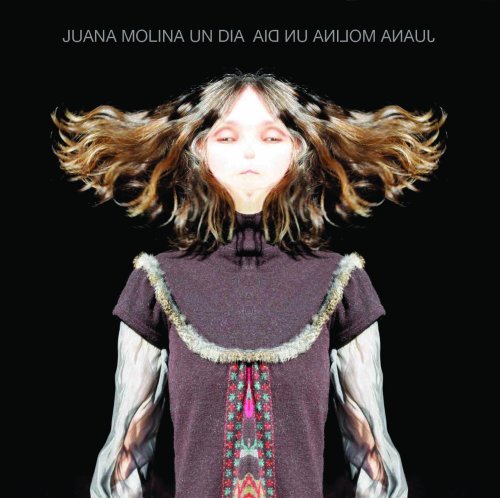
Juana Molina
Un Dia
Release Date: Oct 7, 2008
Genre(s): Indie, Rock, Pop, Electronic
Record label: Domino
Music Critic Score
How the Music Critic Score works
Album Review: Un Dia by Juana Molina
Great, Based on 5 Critics
Based on rating 8.5/10
Back in the late '80s, long before she signed with Domino Records and toured with Feist, Juana Molina was a famous television and sketch-comedy star in her homeland, Argentina. For those of us only acquainted with Molina through her trippy, subterranean sonic landscapes, imagining Molina the comedian instead of Molina the alchemist is a bit of a stretch. Having long-nurtured a profound respect for all things dissonant, discordant, and un-tuned, it seems to have become Molina’s lifelong goal to make a cohesive whole out of conflicting parts.
Based on rating 8/10
Juana Molina's sound is so precious and rare that tampering with the formula is akin to tearing down a singular example of great architecture, or witnessing the extinction of a rare and beautiful animal. Fortunately, Un Dia is immediately recognizable as a Juana Molina album. Yes, there are slight differences between this and her previous work, but fortunately, she's still retained most of what made her special in the past.
Based on rating 8/10
I first encountered Juana Molina on her second album “Segundo”. The cover art was a print of her blond hair which smothered every surface. On the recording she conjured a similarly sensuous effect from just a few elements: her voice, rhythms, and electronics. It seemed as if she had learned the art of balancing hypnotism and stimulation from Tom Ze and the skill to melt and bend sound from Alexander Franov.
Based on rating 7/10
It’s the tempo, stupid! Alongside Portishead’s Third, this is the second album by a well-established artist that I’ve heard this year that’s left me disconcerted and pensive. Even after ten years of absence, I had a pretty clear concept of what any eventual return by the Bristol trio would sound like. And having reviewed the last three of Juana Molina’s previous four albums (all her output on Domino), I was also fairly sure I knew what to expect.
Based on rating 3/5
There used to be a regular club night called the Recycle Collective that featured different combinations of just three musicians; the ongoing theme was that each player, whether singer, saxophonist or classical violinist, played through devices that looped, multiplied and "recycled" everything they played. Un Día, the fifth album by Argentine singer-composer Juana Molina, is dominated by a similarly relentless looping technology, which she applies to her vocals to create a heaving maelstrom of catchy hooks, sighs, cries and whispers, both wordy and wordless. It's hardly new: Molina's tracks evoke the psychedelic fug of Terry Riley (Poppy Nogood, etc.), Fripp & Eno's cerebral meanderings and Björk and Jamie Lidell's more manic experiments.

